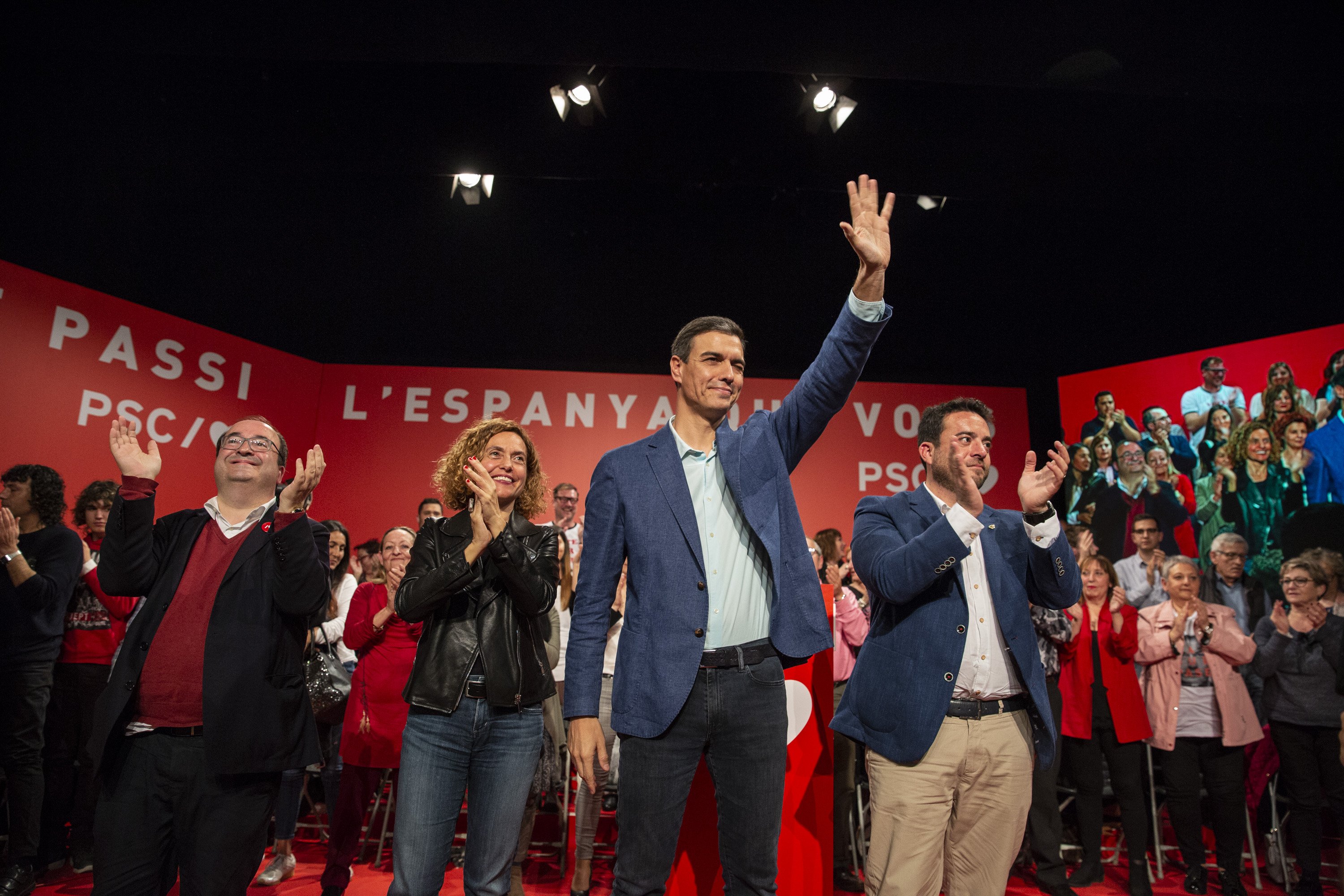Choosing to form an alliance on the left and negotiating an agreement with a Catalan pro-independence party has not reduced Pedro Sánchez's electoral prospects, quite the opposite. According to the latest survey by Spain's CIS public polling agency, published on Thursday, Sánchez's Socialists (PSOE) have consolidated their position as the most popular electoral force in Spain, rising in relation to November 10th's elections from 28.0% to 30.4%. Ten points behind, the right wing Popular Party (PP) retains second place, at 19.9%, falling about one percent. The poll also finds that Vox's momentum seems to be slowing, with the far right party having lost almost two points, from 15.1% to 13.4%, and slipping back from third to fourth place in the rankings. The left wing Unidas Podemos has gained ground, to overtake Vox at 13.8%. The other party of the right, Ciudadanos (Cs), continues in crisis, with 6.5%.
One of the key conclusions of the CIS survey, for which 3,000 people were interviewed between January 2nd to January 13th, is that all parties who took part in the accord to form the new government in Spain - the PSOE, Unidas Podemos and the Catalan pro-independence Republican Left (ERC) - have been rewarded, while the strategy of confrontation has exacted a price in lost support for the three parties of the right.
There is, in fact, a general swing to the left. The three right wing parties - PP, Vox and Cs - achieved a combined total of 42.5% of the vote on election night in November, which was greater than the sum of the two major left wing parties - the Socialists and Podemos - at 41.3%. Now, the situation has reversed and the two parties of the progressivist coalition, with 44.2% of voter support, are ahead of the right bloc, which drops to 39.8%.
Socialists also on top in Catalonia
Meanwhile, Sánchez's partners the Catalan Socialists (PSC) have also improved their position among voters for a hypothetical Spanish election in Catalonia, and would be expected to finish with the highest percentage of the vote, overtaking ERC, which won on November 10th in terms of both votes and seats. The PSC would rise almost two points, from 20.5% to 22.4%, while ERC would lose more than one point, standing at 21.1% when in November it attracted 22.6% of the vote. The poll does not translate votes into seats.
The Commons (En Comú Podem), Catalan associates of Podemos, would retain third place, but improving their results, from 14.2% to 15.2%. In contrast, the pro-independence JxCat is forecast to suffer a sharp fall compared to November. On that occasion, the party led by Carles Puigdemont drew 13.7% of the vote but, says the Spanish polling agency, it would now drop to 5.7%. Behind JxCat, but close behind, would be the left wing, pro-independence CUP, which would also fall slightly and receive 5.1% of the vote.
The right wing unionist parties also take a beating in the poll. Cs and the PP would be close to tied: Ciudadanos' fall from grace last year continues in Catalonia as they plunge from 5.6% to 3.7%, while the PP takes an even bigger tumble from 7.4% to 3.5%. Finally, Vox now gets 2.0% of the vote, less than a third of its 6.3% in November. Thus, the right wing trifachito which could expect to win 39.8% of the vote in Spain as a whole, is only supported in Catalonia by one voter in every ten, or less - 9.2%.
Voter turnout would be expected to fall: about 13% of those who voted in November's election say they would stay home now.
The CIS study coincided with a week of maximum political turmoil, in both Catalonia and Spain: the parliamentary debate on the investiture of Pedro Sánchez as new prime minister, and the Central Electoral Commission's decision to strip Catalan president Quim Torra of his seat in parliament.

